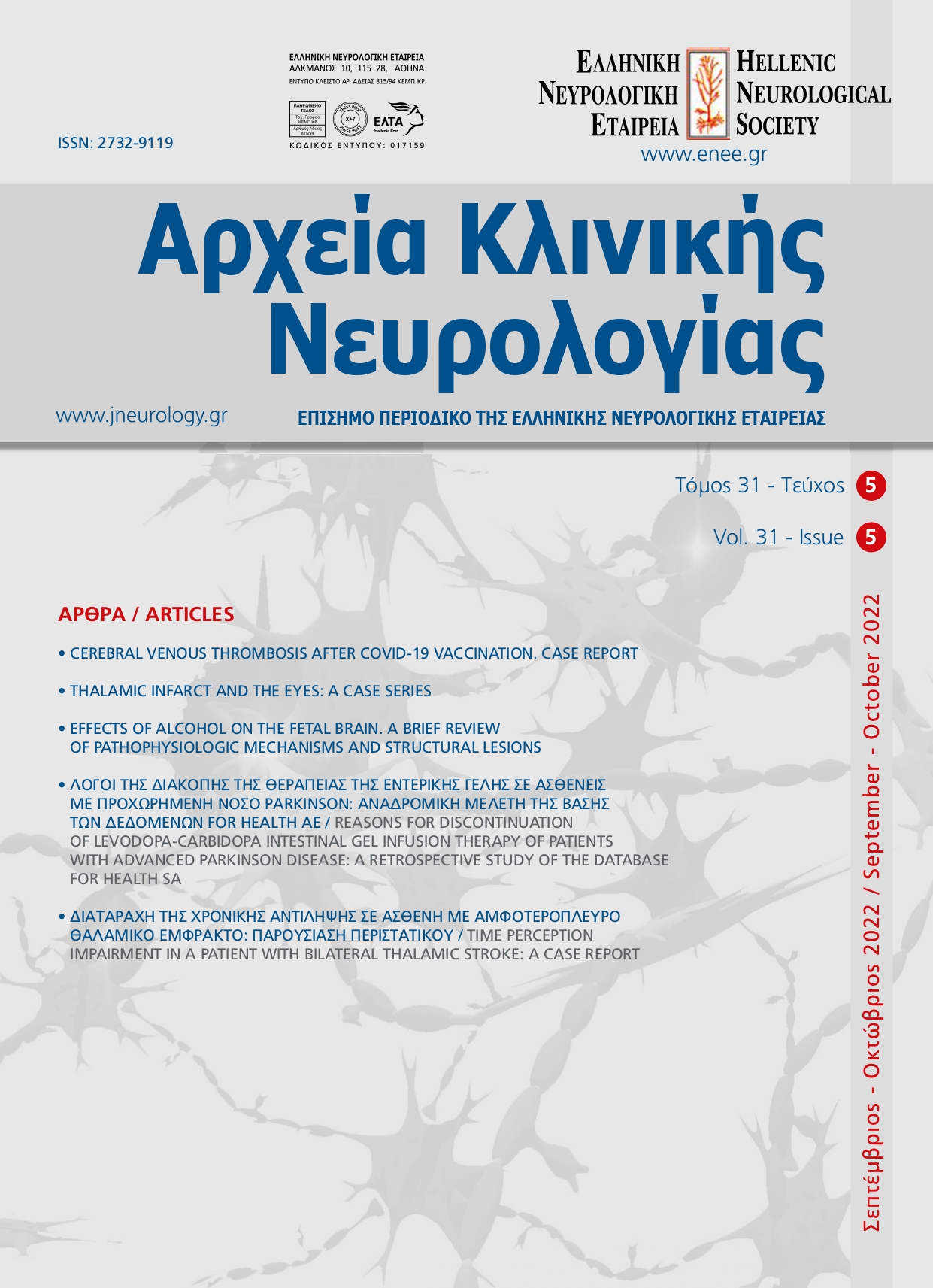ΕΠΙΔΡΆΣΕΙΣ ΤΟΥ ΑΛΚΟΟΛ ΣΤΟΝ ΕΜΒΡΥΙΚΟ ΕΓΚΕΦΑΛΟ. ΒΡΑΧΕΊΑ ΑΝΑΣΚΟΠΗΣΗ ΠΑΘΟΦΥΣΙΟΛΟΓΙΚΏΝ ΜΗΧΑΝΙΣΜΏΝ ΚΑΙ ΑΝΑΤΟΜΙΚΏΝ ΒΛΑΒΏΝ
Keywords:
alcohol, brain, experimental models, fetal alcohol syndromeAbstract
Alcohol is commonly used among people in social occasions and in everyday life but alcohol use disorders are a major health concern with multiple negative effects. Among these, is the toxic effect of alcohol
on the developing fetus, even though it has not yet received the proper attention. Ethanol is a well-known
teratogen that crosses the placenta and causes diffuse structural and functional lesions in the developing brain. The spectrum of disorders that can be caused by prenatal exposure to alcohol is known as fetal
alcohol spectrum disorders.
Ethanol administration to pregnant women, in order to examine its teratogenic effects, cannot be justified by the rules of medical ethics and law. Thus, experimental models are of great importance in order to
gain understanding into these effects. The use of experimental models though presents some difficulties
concerning the application of their results in human embryos, such as the time duration of embryologic
developmental stages and the different rate of alcohol metabolism. Nevertheless, well-designed experimental models may provide useful information including the quantity of alcohol that can induce damage
to the fetus, the critical neurodevelopmental periods of greater vulnerability for the brain as well as the
underlying pathogenetic mechanisms.
Alcohol has been shown to affect practically the whole brain: its actions are relevant to neural crest
formation, central nervous system differentiation, neuronal migration, myelination, synaptogenesis and
gliogenesis. Among the anatomic structures, corpus callosum, hippocampus and cerebellum seem to be
most vulnerable to the toxic effects of alcohol.
We initially describe the pathophysiologic and biochemical mechanisms underlying the toxic effects of
alcohol in the fetal brain. Then, we describe the structural changes of the brain resulting from these toxic
effects, based on results from experimental animal models


